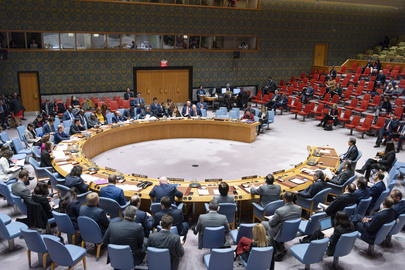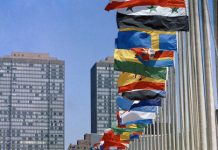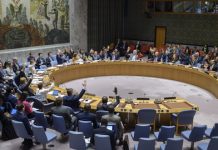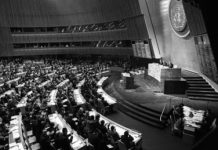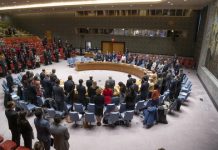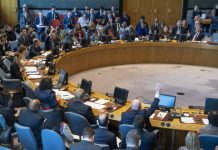In the days leading up to the commemoration on Monday 22 September, UN Women, the agency responsible for overseeing gender equality and women’s empowerment, and the UN Department of Economic and Social Affairs (DESA) sounded the alarm: none of the gender equality targets are on track.
Their report, 2025 Gender Snapshot, warns that 10 per cent of women live in extreme poverty and that 351 million women and girls could still be trapped in it by 2030.
Some 708 million women are excluded from the labour market by unpaid care work. Even those who work are pushed into lower paid jobs. Women are excluded from land ownership, financial services, and decent jobs – they are denied the tools necessary to thrive.
And, according to the report, violence against women and girls persists: one in three women will experience physical or sexual violence during her lifetime. Furthermore, 676 million live within 50 kilometers of a conflict zone the highest figure since the 1990s.
In some countries, hard-won gains are being threatened by an unprecedented backlash against women’s rights and a shrinking civic space.
Nevertheless, it is important to be reminded of the breakthrough that the Fourth World Conference on Women, held in Beijing in 1995, represented and why it is considered to be one of the most important turning points in the advancement of gender equality.
The event led to the adoption of the Beijing Declaration and Platform for Action, a plan with measures focused on key areas such as poverty, education, violence, women in armed conflicts, and exercising power.
Governments from 189 countries unanimously declared that equality between women and men was a matter of human rights and a prerequisite for achieving social justice, as well as a necessary and fundamental prerequisite for development, and peace.
Today, there is more legal protection for women and girls worldwide: 1,583 laws addressing gender-based violence have been enacted in 193 countries, compared to only 12 countries in 1995. And more than 100 countries have trained police to support survivors of violence.
In the workplace, laws prohibiting gender discrimination have proliferated, boosting women’s economic empowerment. New services have emerged to alleviate the burden of unpaid care work, and gender gaps have been closing at all educational levels.
In peacebuilding, there are now 112 national action plans on women, peace, and security worldwide, compared to 19 in 2010.
Students at Siem Reap’s Aranhraingsei Secondary School, Cambodia
The price of progress
At the high-level event on Monday, representatives of Member States, civil society organizations, academic institutions, and the private sector will discuss how to accelerate the implementation of the Beijing Declaration and find resources for the measures needed to put it into action.
For UN Women, investing in women means investing in society as a whole: if governments act immediately, extreme poverty among women could be reduced from 9.2 per cent to 2.7 per cent by 2050, which would provide a $342 trillion boost to the global economy by that year.
However, the call to allocate more resources to achieve parity comes at a time when countries are cutting funding both for these initiatives and for data collection. Only half of women´s ministries and gender equality institutions have sufficient resources.
For Sarah Hendriks of UN Women, this is a matter of political will, with systems prioritizing war over rights and equality. “We live now in a world that spends $2.7 trillion a year on weapons and yet falls short on the $320 billion price tag to advance and achieve gender equality and women’s rights,” she emphasised.
Participants attend the Commission on the Status of Women.
Another century of inequality?
The high-level meeting will be chaired by Annalena Baerbock, President of the UN General Assembly since early September and only the fifth woman to hold the position since the Organization was founded 80 years ago.
At the end of the high-level week, Baerbock will also preside over the election of the person who will occupy the United Nations Secretary-General position starting in 2027: despite persistent and mounting pressure from many quarters, there has never been a woman in the role.
Globally, women remain excluded from power and decision-making: they occupy barely 27 per cent of parliamentary seats and 30 per cent of leadership positions. 113 countries have never had a woman Head of State. If the rate of progress does not change, gender equality in leadership would take a century to achieve.
Source of original article: United Nations (news.un.org). Photo credit: UN. The content of this article does not necessarily reflect the views or opinion of Global Diaspora News (www.globaldiasporanews.net).
To submit your press release: (https://www.globaldiasporanews.com/pr).
To advertise on Global Diaspora News: (www.globaldiasporanews.com/ads).
Sign up to Global Diaspora News newsletter (https://www.globaldiasporanews.com/newsletter/) to start receiving updates and opportunities directly in your email inbox for free.


